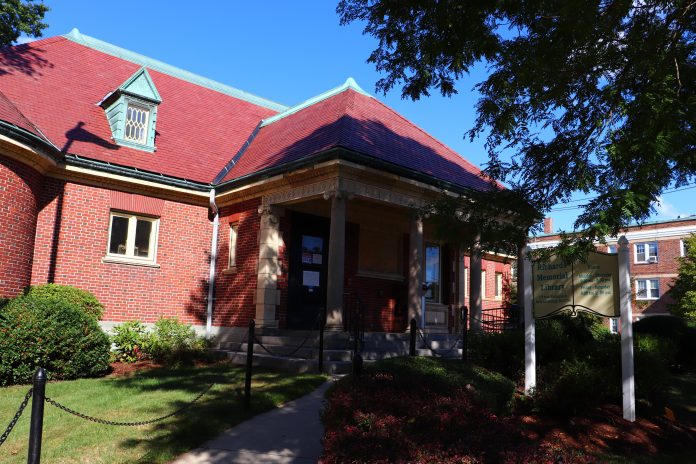By Geena Monahan—For the North Star Reporter
The Massachusetts Senate voted unanimously on Thursday, Nov. 13, to advance legislation aimed at helping public libraries better afford and provide digital materials such as eBooks and audiobooks – resources that have become increasingly essential but financially burdensome for North Attleborough’s Richards Memorial Library.
The bill, An Act addressing challenges facing public libraries and digital resource collections (S.2710), would establish a special legislative commission to examine rising costs and access issues surrounding digital resources. State Sen. Paul Feeney (D-Foxborough), Senate chair of the Library Legislative Caucus, is the bill’s lead sponsor.
“This current reality is unsustainable for our libraries,” said Feeney in a statement. “With the passage of this bill, we are one step closer to solving this issue in Massachusetts in a way that is fair, enforceable and worthy of the Commonwealth’s invaluable libraries.”
The 17-member commission would include legislators, library leaders, accessibility advocates, state officials, legal experts and representatives from the publishing industry and The Authors Guild. Its recommendations would guide future legislative and administrative actions aimed at ensuring sustainable access to electronic materials statewide.
Richards Memorial Library Director Debbie Clifton said she has seen firsthand how much more libraries pay for eBooks and audiobooks compared to individual consumers.
“Individuals pay a lower, one-time cost for permanent ownership or subscription access,” said Clifton. “Libraries pay significantly more per title for limited-time, metered licenses that expire, forcing constant repurchase due to publisher restrictions and creating higher costs and waitlists for patrons.”
According to a press release from Feeney’s office, Massachusetts libraries have spent more than $50 million in state, local and federal funds over the past decade on digital materials. While libraries can purchase physical books at discounts of up to 45%, those savings do not apply to digitally rented materials.
The financial strain on libraries has contributed to long waitlists – often two months or more – for popular eBooks and audiobooks. Clifton said this is frequently the case for North Attleborough residents borrowing digitally through the apps Libby and OverDrive.
“Wait times depend on factors such as how popular the book is, how many copies are in the network and how many holds per copy,” said Clifton. “Unfortunately, a patron can wait months for a copy to become available.”
Streaming and downloadable content has become a “way of life now,” Clifton said, adding that demand for audiobooks surged during the COVID-19 pandemic, when libraries were closed and physical borrowing was impossible.
For fiscal year 2025, Richards Memorial Library patrons borrowed 18,498 eBooks and 16,749 audiobooks through OverDrive, and 2,503 eBooks and 5,945 audiobooks through Hoopla.
The Senate’s proposed commission would study this evolving landscape of digital content in public libraries, focusing on cost trends, equitable actions and privacy concerns, the announcement states. It would also review how other states approach digital lending and explore the legal distinctions between digital licensing and traditional print ownership.
“Lower purchase price means the library can have more options for residents to read and more copies of the most popular items, reducing wait times,” said Clifton. “Our goal is always to provide access to materials with no wait times, so affordability is key.”
The bill now moves to the House of Representatives for further consideration.

